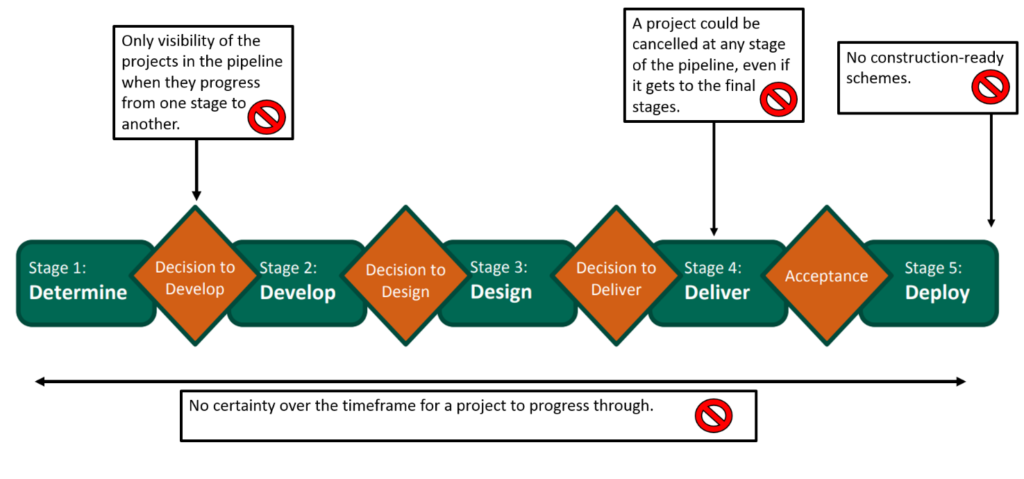SPONSORED POST

It is tempting at the moment to link every article on LabourList to Brexit in some way. However, there are some issues that are not bound up with leaving the EU – the government’s plan for enhancing the UK’s railways is one of them.
LabourList readers will be unaware that last year the government announced it would be changing the process by which improvements to the classic rail network, known as enhancements, would be decided. These are not as large as major projects like Crossrail or HS2 but are often bread-and-butter schemes that everyone agrees are required to make the existing UK rail network even better.
However, this change to the process – unknown to those outside the rail industry – means that there is little or no visibility of what projects the government thinks the network needs in order to increase rail capacity, improve journey times, and generate further economic growth. The government also has a goal to decarbonise the rail network by 2040 – it simply cannot do this without enhancement projects.
The Railway Industry Association, the national trade body for the rail supply industry, is now calling for the government to provide more clarity. Simply, if we don’t know which enhancement projects the government is planning, schemes will become more expensive for the taxpayer, and there will be delays to delivering improvements in the network, affecting passengers and freight users of the railway.
The genesis of this problem started in autumn 2017, when the DfT took a decision to stop including large-scale, new infrastructure projects – such as, for example, new track, bridge or tunnel schemes – in the five yearly funding package for rail infrastructure. The government decided instead to institute a new ‘pipeline’ approach to decide which schemes would get the green light as and when proposed. This new process for making decisions about which enhancement projects go-ahead stopped short of saying which projects were actually needed.
The government’s own advice on this, published just last February, said there was now a “new expectation that all central government departments will publish their commercial pipelines” and that these changes “will help suppliers to understand the government’s long-term demand for services and prepare themselves to respond to contract opportunities” (from the Cabinet Office’s ‘Outsourcing Playbook’).
So whilst we now know how individual rail projects will progress through different stages before coming to market – an approach titled the ‘Rail Network Enhancements Pipeline’ (RNEP), see image below – other than projects overhanging from the previous five-yearly investment cycle, there are now no new construction-ready schemes in the pipeline, and there will be a significant hiatus before any new work comes to market.
The fact that specific projects will not be known means rail businesses cannot prepare for upcoming work, reducing their investment, jobs, and skills development, and threatening the ability of smaller rail firms to survive. It also increases the cost of rail projects for taxpayers, passengers and freight.
In early March, RIA wrote an open letter to rail minister Andrew Jones, calling on the DfT to publish a full list of enhancement projects for the upcoming five yearly funding cycle, Control Period 6 (which starts in April), and to commit to full transparency throughout the decision-making process for enhancements. The Government is already committed to doing this in its response to the transport select committee’s inquiry on rail infrastructure investment.
So we urge the rail minister and the government to provide much greater transparency for rail businesses on which specific enhancement schemes it has in mind. To be clear, we are not asking for more money for the rail sector; we simply want to increase visibility of the projects planned. Knowing how the government’s new pipeline decision-making process works does not give enough visibility for those in the railway industry who want to build a better network and need to plan for upcoming work. And this ultimately hinders our ability to build a better rail network, benefitting rail users, taxpayers, the economy and the UK’s connectivity as a whole.





More from LabourList
‘After years of cuts, Labour’s local government settlement begins to put things right’
‘The Sherriff of Wild Westminster: what must change in elections bill’
‘The hope that kills you’: Reflections from the final day in Gorton and Denton